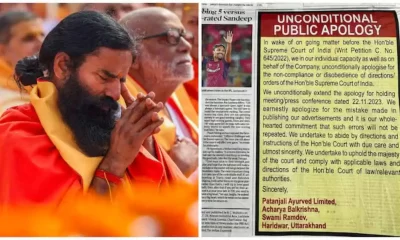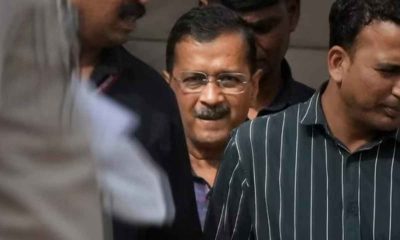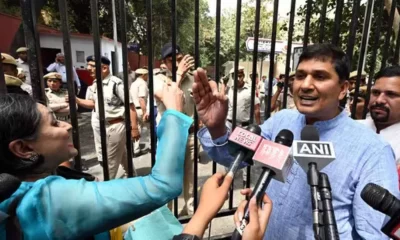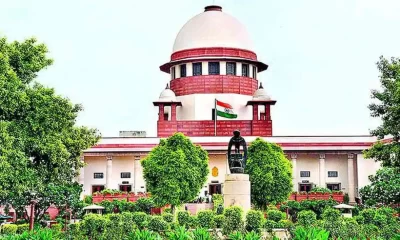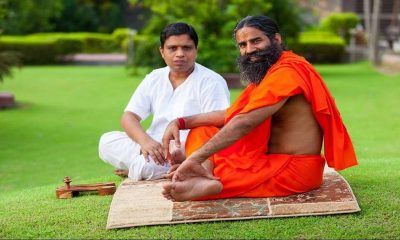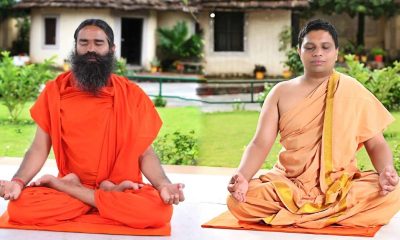India News
SC privacy hearing Day 2: If India has agreed to privacy on international fora, why not in India?
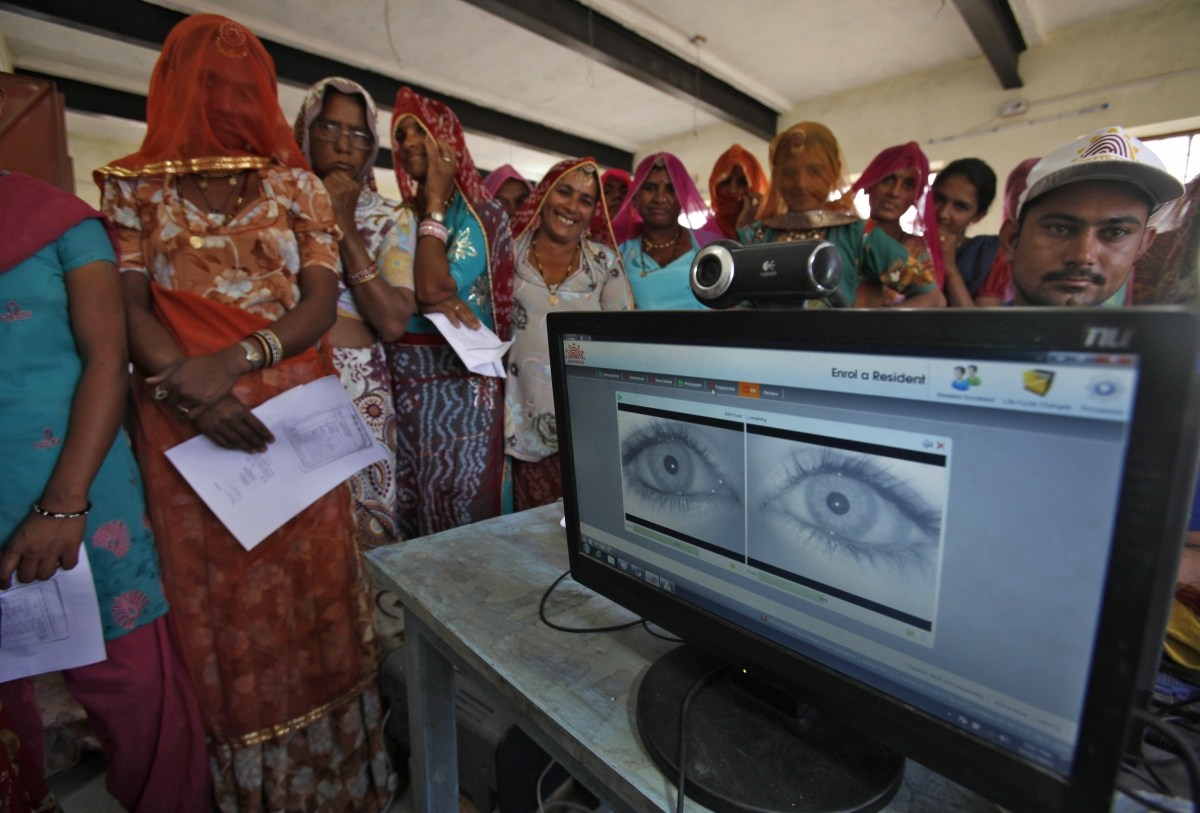
[vc_row][vc_column][vc_column_text]Centred now on the issue of privacy and whether it is a fundamental right, the hearing of the case regarding Aadhaar in Supreme Court on Thursday saw petitioners cite arguments from international resolutions to argue that right to privacy was implicit in the fundamental rights and also that it was the duty of the state to expand the right rather than curtail it.
Further hearing will continue on Tuesday, July 25.
While hearing the case related to Aadhaar and the right to privacy – Aadhaar and its biometric data collection has been challenged as interfering in people’s privacy, and petitions on privacy as a fundamental right are being heard – the special nine-judge constitution bench of the Supreme Court had observed on Wednesday (July 19) that the right to privacy cannot be absolute. It had termed privacy as an amorphous term incorporating several factors.
As the hearings continued on Thursday (July 20), more appellants presented their views on the importance of privacy being incorporated as a fundamental right, even though the Constitution makes no mention of it. It has been said that the writers of the Constitution intentionally omitted privacy as a fundamental right, because of its amorphous nature. However, on Thursday, the arguments were presented also from the international angle where India has been party to several international treaties which spell out privacy as an essential component of basic rights of a human being. Here the argument is if India has acquiesced to agree to this on international forums, how can it deny its own citizens similar rights?
Fifty-five years ago another constitution bench had decided that privacy was not a basic right. This is a larger bench and has the arduous task of deciding whether Indians have the right to retain certain basic information as “private”, or whether the government has the right to tear from its citizens all information even if the citizens concerned are unwilling to reveal the same.
It is not just important to make Aadhaar mandatory for all the functions that the government wants, but also to define the basic rights of a human being in India.
On Wednesday petitioners held up Finance Minister Arun Jaitley’s statement in Parliament when he was moving the Aadhaar Bill in March, saying: “Is privacy a fundamental right or not? The present Bill presupposes and is based on a premise, and it’s too late in the day to contest that privacy is not a fundamental right. Privacy is not an absolute right, which is subjected to a restriction established by law on a fair and just procedure.”
Since it pertains to the Aadhaar bill itself, Jaitley’s statement was not out of context.
The government’s stand, however, was standoffish. Former Attorney General Mukul Rohatgi, while arguing in court, had repeatedly said that Indian citizens donot have a fundamental right to privacy under the Constitution. He was justifying the collection of data such as iris scans and fingerprints taken.
Another important statement was made on Wednesday by senior lawyer Gopal Subramanium, representing the petitioners. He argued that the rights to life and liberty are pre-existing natural rights. “Privacy is embedded in both liberty and dignity. It is not a twilight right but the heart and soul of the Constitution,” he had said.
Also important was the observation of Justice J Chelameswar, a judge on the current bench. He said: “Even freedom of press is not explicit in the constitution but courts have interpreted that the right to free speech includes freedom of expression of press.”
A political interlude had been provided last morning by CPM’s Sitaram Yechury, who had tweeted: “We have a government which believes in the right to privacy for top loan defaulters from being named, but not in Privacy for ordinary citizens. Right to Privacy of the ordinary Indian cannot be invaded by any government. Every Indian’s dignity is important.”
That political colour could not make it into the courtroom, though. Inside, the issue being discussed was more fundamental.
Thursday’s deliberations
On Thursday (July 20) senior advocate Arvind Datar, arguing for the petitioners, referred to a foreign article which gives 3 types of privacy. They are (1) Data privacy (2) Informational privacy and (3) Decisional privacy.
Justice DY Chandrachud asked: “What will happen if violation of privacy is by non state actor? It imposes on the state to have a regulatory framework to enforce these rights even if they are violated by a private party. The state cannot say that your right is violated by a private party and hence we are not concerned.”
Senior advocate Anand Grover then stared his argument for another petitioner. He said: “The Constitution is a living body and if it is a living body then it has to evolve. Fundamental rights have to be expanded and cannot be curtailed. India has ratified the International Covenant on Civil and Political Rights (ICCPR) which enumerates rights to privacy. States have an obligation to respect that is government must not violate the rights.
“The UN commission has two bodies. One is the General Assembly and another is the Human Rights Council. India, having ratified the resolution of international human rights, it is the obligation of the state to respect the treaty and also to protect the right of privacy as stipulated in Article 17 of the international law,” he said. “The obligation of the state is to enact legislation to protect privacy. The International Human Rights Commission has given two reports, the latest being of 2014.”
He stated that the General Assembly of UN recognises the law of privacy. “Privacy is required to protect other rights. The report of the office of the UN High Commissioner for HRs on the right to privacy in the digital age (dated 30 June 2014) lays down the contours on the right to privacy under Article 17 of the ICCPR. Article 51 and art 253 of Constitution of India requires India to give effect to international treaties.
“No person shall be deprived of his life and liberty except procedure established by law,” said Grover. He quoted the Nalsa Case, the judgment in which stated: “In the absence of a contrary legislation, municipal courts in India would respect the rules of international law.”
So, he argued, “FRs including but not limited to Art 14, 19, 21 etc have to be interpreted in line with Art 17 of ICCPR.”
Justice DY Chandrachud asked till how far can a person remain anonymous? “If any person says I don’t want to disclose the names of my parents in the birth certificate and while making his passport? What is meant by legitimate and illegitimate use of data? The state can use data of HIV affected person to provide health services. It cannot be said that under the right of privacy, it cannot not be used if it is an absolute right.”
Senior advocate Sajan Poovayya, also for a petitioner, said: “The postulated issue of recognition of the right to privacy as a fundamental right is not merely to be looked at from the viewpoint of judicial dicta but also from how Parliament has manifested it’s understanding of the said right. Even in pre-constitutional legislation the sacrosanct position of a right to privacy had been recognised insofar as social procedures had been established in such laws to create any curb or fetter on any aspect of the said right to privacy.
“In post constitutional statutes, similar procedures established by law have always been provided to create fetter on aspects of privacy. The SC in context of right to information act 2005, ordered that right to privacy is not only recognized as a basic human right to under art 12 of UDHR but parliament has recognized it under Art 21.”
Poovayya added: “Keeping pace with sociological developments through judicial pronouncements of this court, has been that the right to privacy is (a) a fundamental right and (b) deals with persons and not merely places.”
Senior advocate Meenakshi Arora, also for one of petitioners, said: “Privacy did not emerge one fine day fully formed and structured from the theoretical penumbras of various constitutional articles. Rather it is an amorphous and a protean concept that emerges from values and principles that have evolved from case law over hundreds of years.
“In England, eavesdropping was criminalised under the Justices of Peace Act 1361. In his seminal ‘Commentaries on the Laws of England’ (8th edition, 1778, volume IV, p. 167,168), Blackstone writes of common nuisances which he states are such inconvenient or troublesome offences, as annoy the whole community in general, and not merely some particular person; and are indictable only… In this category he includes, ‘6. Eaves-droppers, or such as listen under walls or windows, or the eaves of a house, to hearken after recourse, and thereupon to frame slanderous and mischievous tales, are a common nuisance and presentable at the court-leet; or are indictable at the sessions, and punishable by fine and finding sureties for their good behaviour.”
“Nowadays privacy rights are explicitly recognised or are recognised by implication under the Universal declaration of Human Rights (1948) (arguably part of customary international law and therefore part of the law of India), the International Covenant of Civil and Political Rights (ratified by India and so to be read into the Constitution), the European Convention of Human Rights, the Constitutions of the United States, the United Kingdom and virtually every other democratic or liberal Constitution. Constitutional courts in India have explicitly recognised a right to privacy for over 40 years. Our statutes recognise privacy interests as well. In particular the Protection of Human Rights Act, 1993 is relevant.
“Privacy or the right to be left alone has the following, amongst other important components:
- Privacy of one’s home and residence:
- Privacy of personal belongings and freedom from arbitrary searches and seizures:
- Privacy of personal data, and freedom from surveillance:
- Privacy of personal choice:
“The stray observations in the judgment in MP Sharma about the lack of a right of privacy were inaccurate as being somewhat overbroad in 1954 and are clearly erroneous today. As such, this Hon’ble Court may clarify the same and limit the ratio of the judgments to the facts of that case.”
The matter will be further heard on Tuesday (July 25).[/vc_column_text][/vc_column][/vc_row]
2024 Lok Sabha Elections
Sunita Kejriwal holds maiden Lok Sabha election roadshow in Delhi
Sunita Kejriwal will also hold a road show in West Delhi Lok Sabha constituency on Sunday. AAP party leaders said Sunita Kejriwal will also spearhead the campaign for AAP candidates in South Delhi and New Delhi constituencies as well as in Haryana, Gujarat and Punjab.
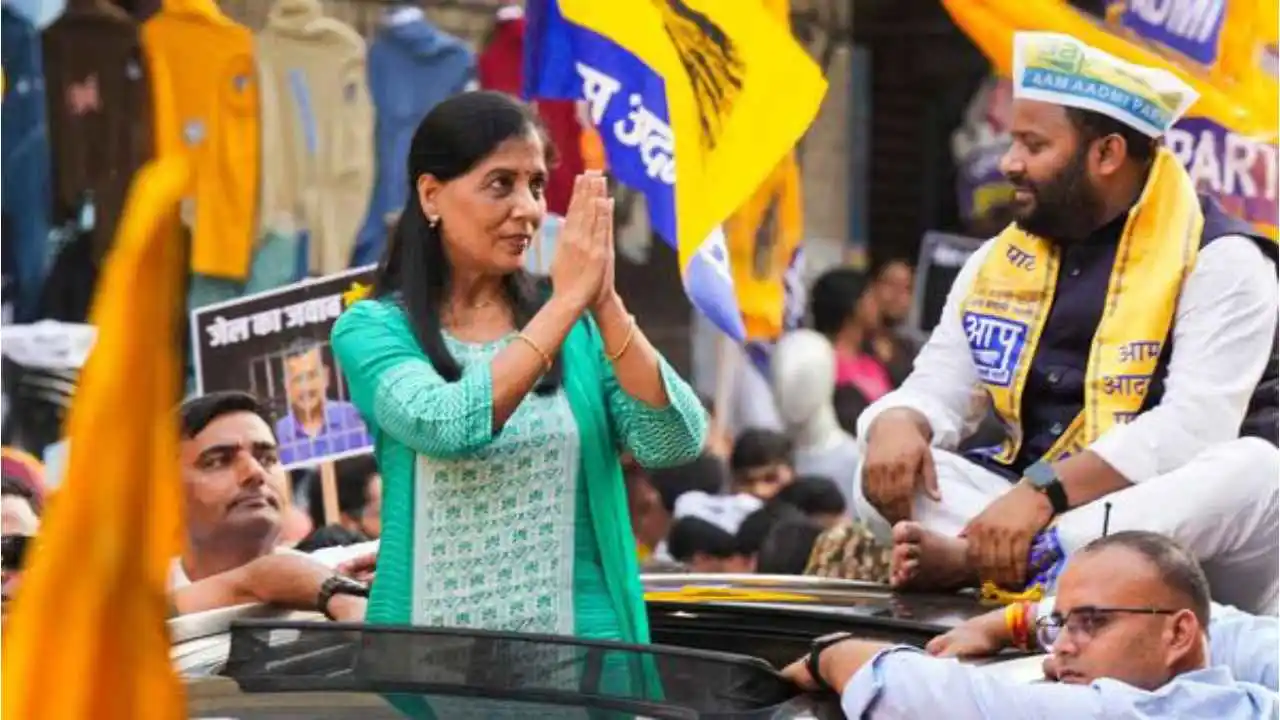
Aam Aadmi Party began its campaign for 3rd phase of Lok Sabha elections 2024 on Saturday with Sunita Kejriwal, wife of jailed Delhi Chief Minister Arvind Kejriwal holding a roadshow in Delhi. In a massive rally, Sunita Kejriwal was be seen standing on a vehicle holding her hands and greeting the people of the area. AAP’s East Delhi candidate Kuldeep Kumar was seen sitting on the vehicle as he showcased a portrait of Rani Laxmibai.
Earlier ahead of Sunita Kejrieal’s roadshow, Kuldeep Kumar told the media that Delhi Chief Minister Arvind Kejriwal who worked to provide the best school, and free- electricity to the people of Delhi has been framed in a fake case by BJP. Kumar further added that from today onwards Sunita Kejriwal’s roadshow will start and she is going to seek support and blessings from the Delhi people to continue its fight against the BJP government.
Aam Aadmi Party workers also staged a protest under the banner of Jail ka jawab vote se near Delhi’s Lakshmi Nagar area on Saturday against the arrest of Delhi CM Arvind Kejriwal in connection with an excise policy case.
After the Delhi CM’s arrest by the Enforcement Directorate (ED) in the liquor policy case in March, Sunita Kejriwal has taken up a more prominent role in campaigning activities for the Aam Aadmi Party. Since the Delhi CM’s arrest, Atishi and other AAP leaders have alleged that the arrest was made so that to the AAP Supremo can be prevented from campaigning for the Lok Sabha elections. Arvind Kejriwal has been sent to judicial custody until May 7.
Sunita Kejriwal will also hold a road show in West Delhi Lok Sabha constituency on Sunday. AAP party leaders said Sunita Kejriwal will also spearhead the campaign for AAP candidates in South Delhi and New Delhi constituencies as well as in Haryana, Gujarat and Punjab. She is emerging as a star campaigner for Aam Aadmi Party.
2024 Lok Sabha Elections
Mallikarjun Kharge says candidates for Amethi, Rae Bareli seats in Uttar Pradesh will be announced in a few days
On being asked about the names of the candidates for Amethi and Rae Bareli Lok Sabha constituencies Mallikarjun Kharge said the people will have to wait for a few more days. He said when the names of candidates come from people to him and he will sign the notification, then the announcement will be made.
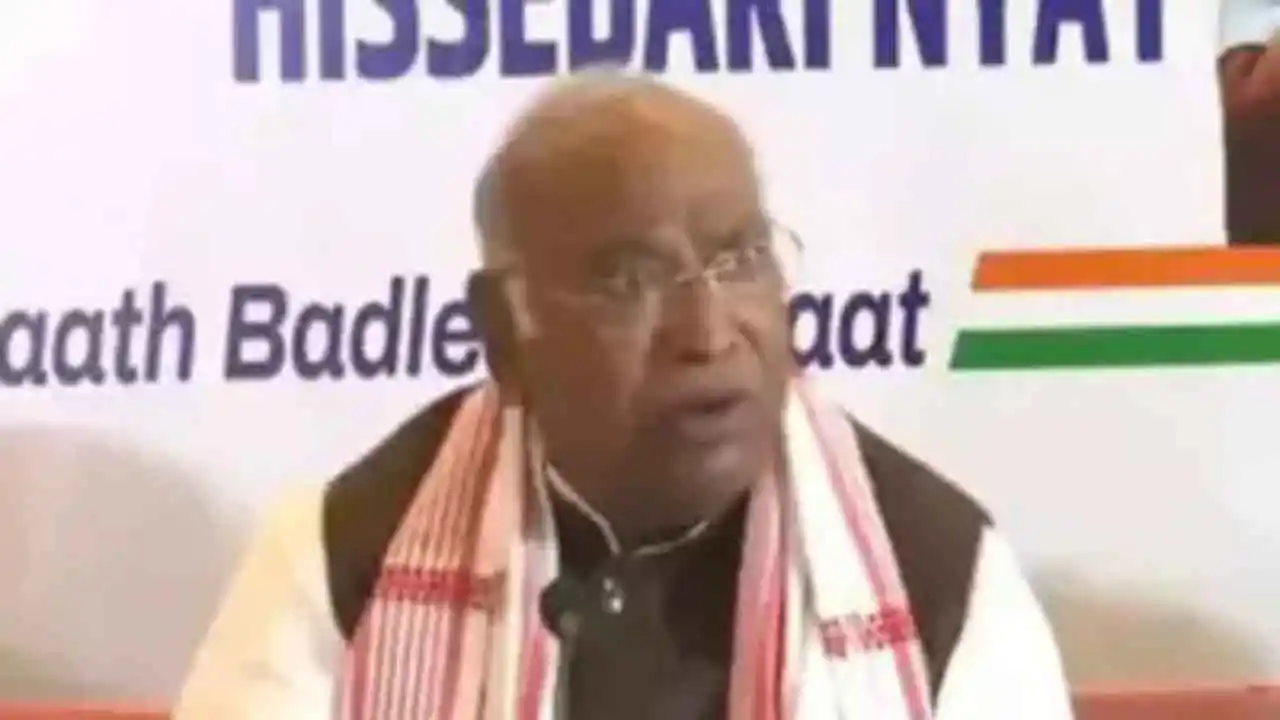
Congress president Mallikarjun Kharge on Saturday said that the candidates for prestigious Amethi and Rae Bareli seats in Uttar Pradesh will be announced in a few days. He was addressing a press conference where he claimed that though the BJP says the corrupt must be put in jails, when leaders facing corruption charges join the saffron party, they are put on the lap and sent to Rajya Sabha or assembly.
On being asked about the names of the candidates for Amethi and Rae Bareli Lok Sabha constituencies he said the people will have to wait for a few more days. He said when the names of candidates come from people to him and he will sign the notification, then the announcement will be made.
On being questioned about Congress leaders changing constituencies Kharge asked how many times have Atal Bihari Vajpayee and Lal Krishna Advani changed their seats. His response came when asked about the BJP criticising Rahul Gandhi for fighting the elections from Kerala’s Wayanad instead of Amethi. Referring to Assam Chief Minister Himanta Biswa Sarma, Kharge said the Congress is not affected by people who grew up in the party and left it later.
The Congress president launched an all round attack on the BJP and PM Modi and said the prime minister did not implement even one of his electoral promises and still says Modi did a lot of work for the country. Addressing the press conference he said the BJP never fought for the independence of India, but Congress is a party of those who made India independent. He said the BJP never fought for the independence of India, for the development of India. The Congress President said the BJP speaks so much about patriotism and that the contribution of Pandit Jawahar Lal Nehru, Indira Gandhi and Lal Bahadur Shastri is nothing before them.
2024 Lok Sabha Elections
Priyanka Gandhi accuses BJP of planning to change the Constitution, criticises PM Modi for inflation
Priyanka Gandhi was speaking at an election rally at Dharampur village of tribal dominated Valsad district held in support of Congress candidate for ST-reserved Valsad Lok Sabha seat, Anant Patel.
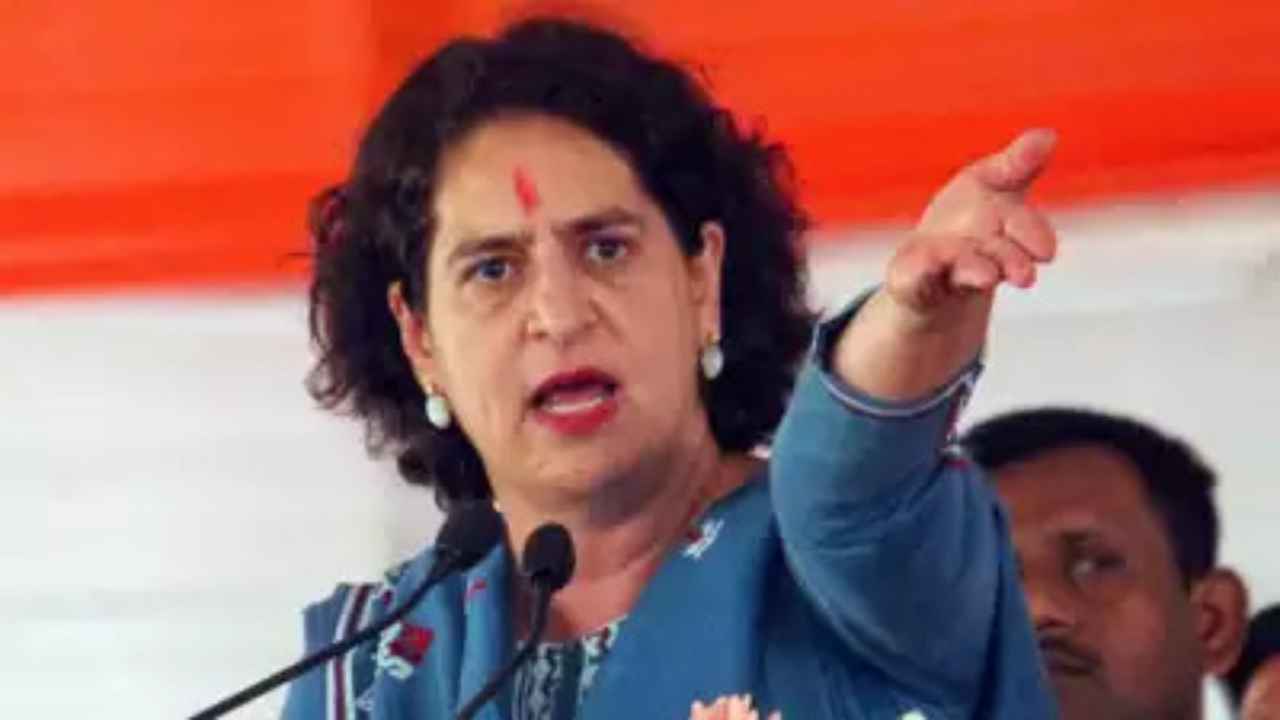
Congress leader Priyanka Gandhi on Saturday said the BJP may be denying it now, but the party will change the Constitution if it returns to power. She targeted Prime Minister Narendra Modi over inflation and called him the mehengai man.
Gandhi said the BJP leaders and candidates are saying that they will change the Constitution. She said PM Modi is denying it and this is BJP’s tactic. Priyanka Gandhi was speaking at an election rally at Dharampur village of tribal dominated Valsad district, Gujarat held in support of Congress candidate for ST-reserved Valsad Lok Sabha seat, Anant Patel.
Gandhi said first the BJP will deny what they want to do. But after coming to power they will implement it. She further added the BJP wants to change the constitution to weaken the common people and deprive them of their rights given in the Constitution. She said the BJP leaders project the Prime Minister as powerful and say that chutki bajake ladai rukwa dete hai (he can stop the Russia- Ukraine war with the snap of his fingers). She asked why is Prime Minister unable to remove poverty just like that?
Priyanka Gandhi claimed the tribal population in Gujarat which is Modi’s home state and the whole country is suffering from issues like rising inflation, unemployment, low remumberation, loss of land, violence against women and other atrocities. She highlighted the Congress manifesto and said it addresses issues faced by the tribal population.
She assured the people that the Congress will bring schemes like MGNREGA for urban areas where families will get 100 days of guaranteed work. She said the Congress is committed to filing about 30 lakh vacancies in government jobs, providing subsidised diesel to fishermen and take the minimum wage to Rs 400. Gandhi said the Congress is going to work out sub plans for Scheduled Tribes and scheduled castes.
-
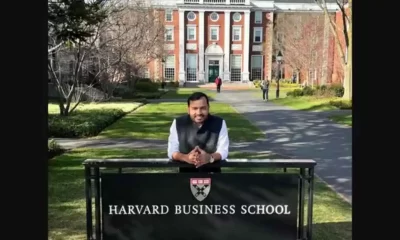
 Education6 hours ago
Education6 hours agoPhysics Wallah founder gets invited as speaker to Harvard, Stanford Universities, post goes viral
-

 2024 Lok Sabha Elections3 hours ago
2024 Lok Sabha Elections3 hours agoMallikarjun Kharge says candidates for Amethi, Rae Bareli seats in Uttar Pradesh will be announced in a few days
-
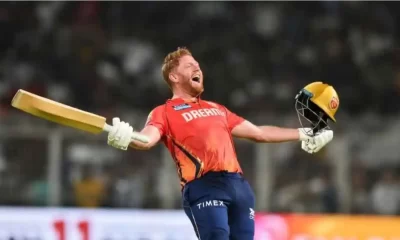
 Cricket news9 hours ago
Cricket news9 hours agoIPL 2024: Punjab Kings beat Kolkata Knight Riders by 8 wickets to chase down highest T20 total
-

 2024 Lok Sabha Elections7 hours ago
2024 Lok Sabha Elections7 hours agoSmriti Irani takes a swipe at Rahul Gandhi for calling Amethi his home but contesting Lok Sabha elections from Wayanad
-

 2024 Lok Sabha Elections4 hours ago
2024 Lok Sabha Elections4 hours agoPriyanka Gandhi accuses BJP of planning to change the Constitution, criticises PM Modi for inflation
-
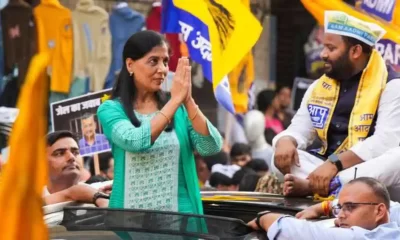
 2024 Lok Sabha Elections1 hour ago
2024 Lok Sabha Elections1 hour agoSunita Kejriwal holds maiden Lok Sabha election roadshow in Delhi

